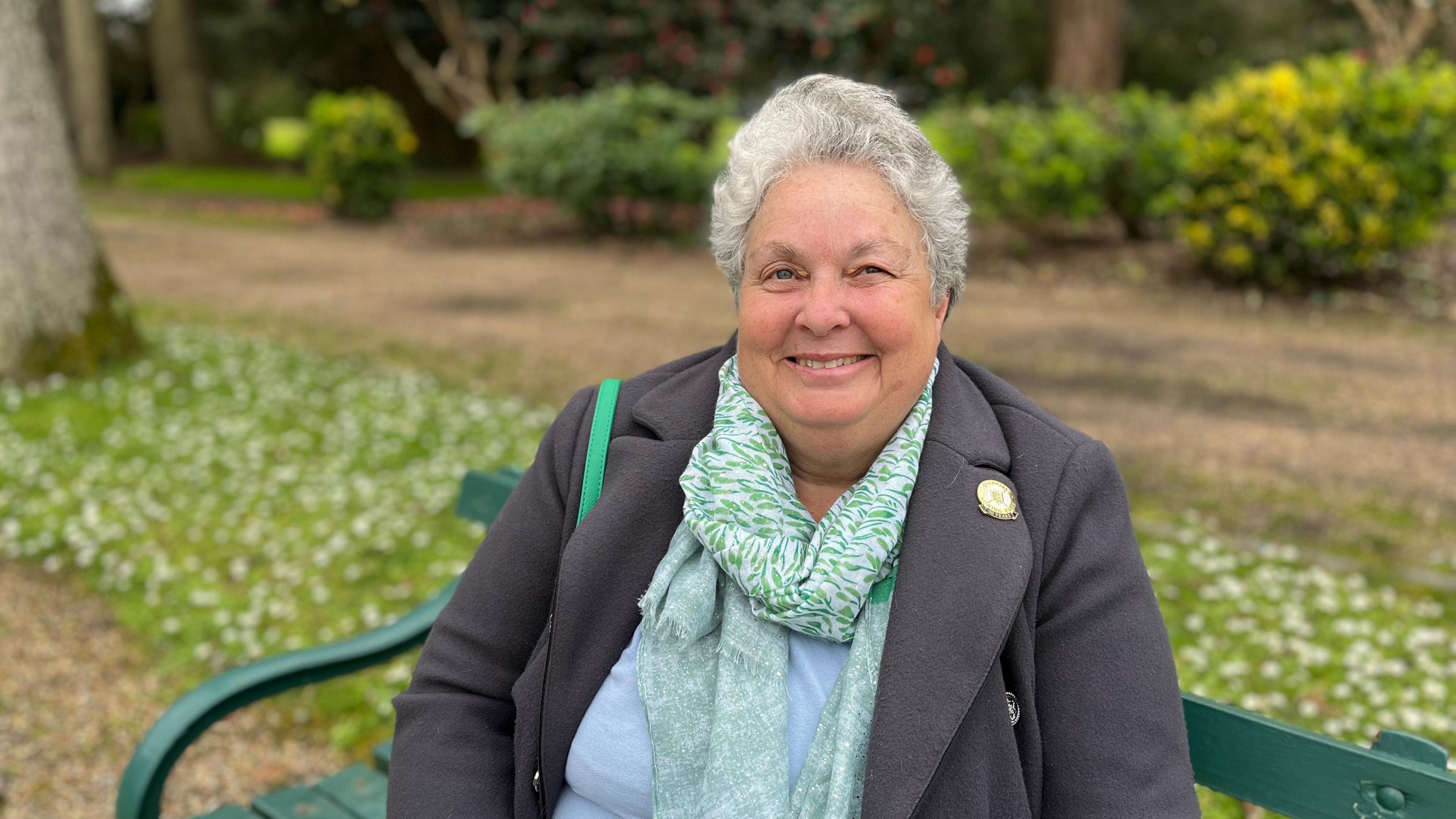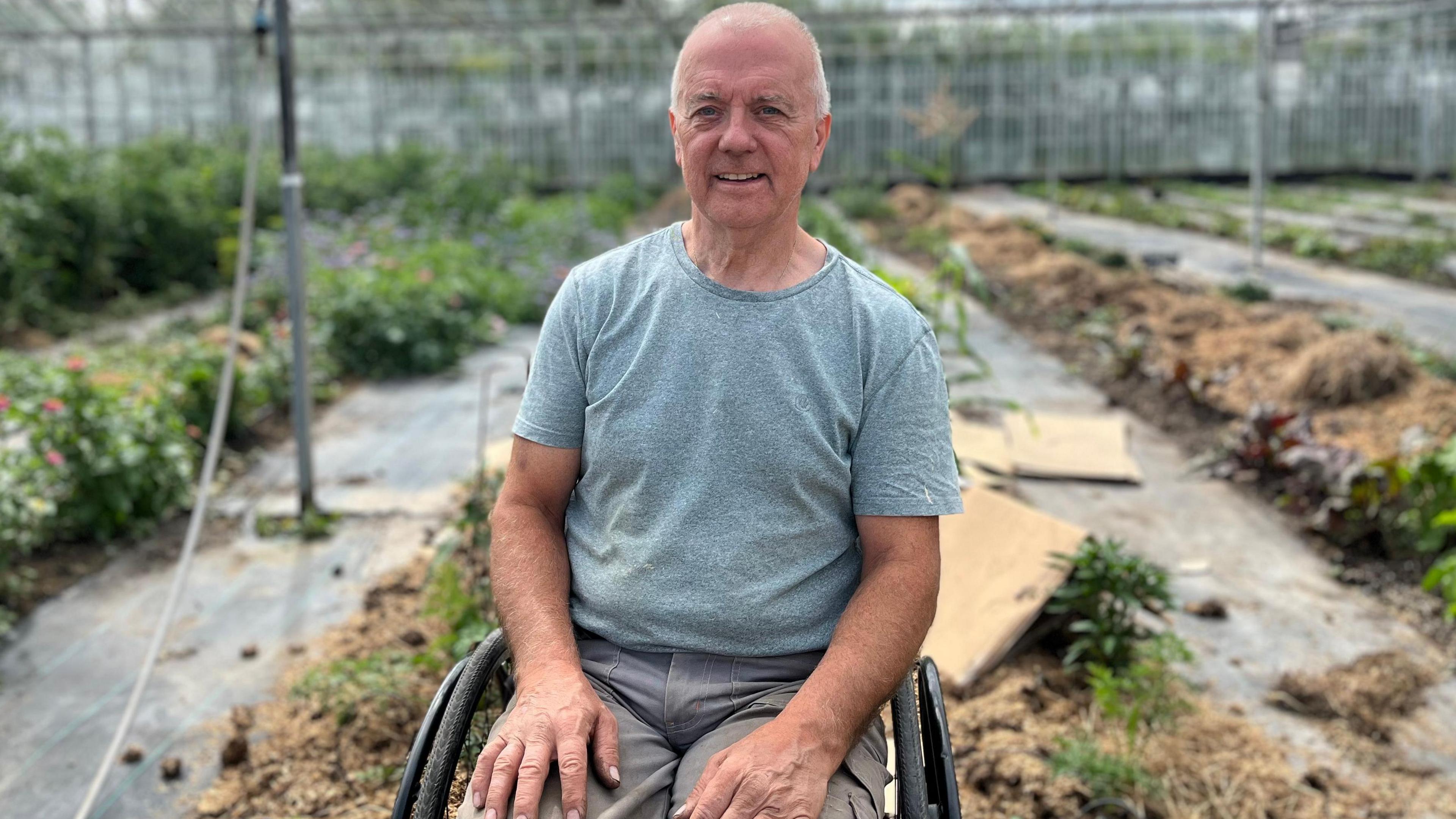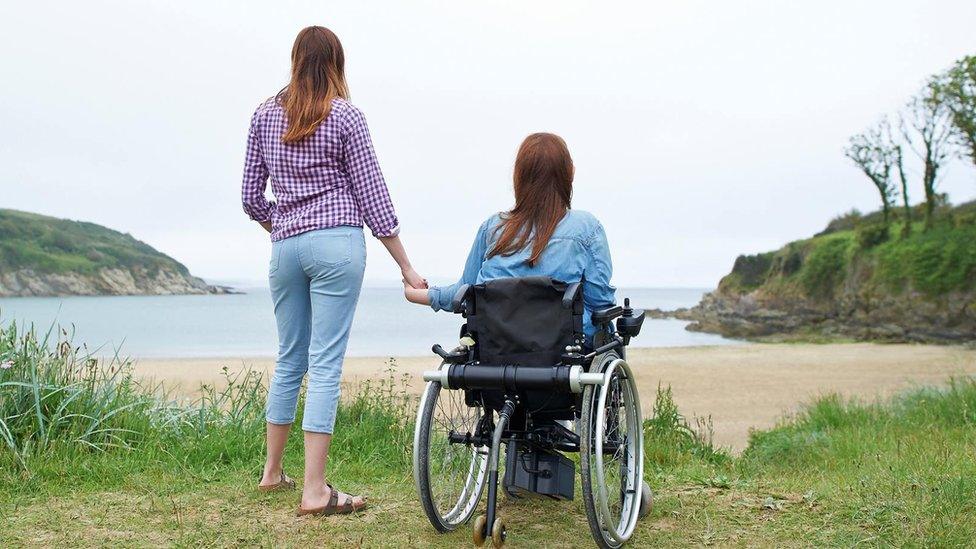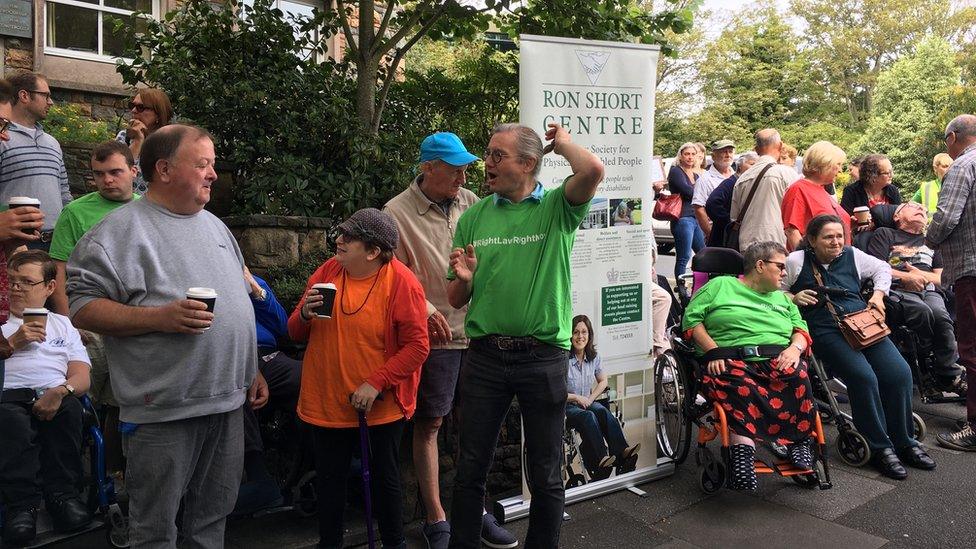UN Disabilities Convention 'should be a priority'

Carol Le Page, Social Policy Director at Guernsey Disability Alliance, said the convention looks for inclusion and equity on all fronts for disabled people
- Published
Guernsey Disability Alliance has called for the States to obtain the United Nations Convention on the Rights of Persons with Disabilities (UNCRPD) and to make it a priority for the next term.
The UNCRPD is an international treaty which promotes, protects and ensures the rights of disabled people through legislation and the monitoring of government.
The convention's monitoring process is every four-to-five years and means that someone outside Guernsey's government can look at the island's policies and legislation.
Carol Le Page, Social Policy Director at Guernsey Disability Alliance, said the convention would "hold the government to account".

Aindre Reece-Sheerin said the convention gives disabled people a "safeguard"
Aindre Reece-Sheerin, an activist and professional disability access consultant, was involved in a road traffic accident almost 30 years ago, which left him a wheelchair user.
Mr Reece-Sheerin described the convention as a "tick-box exercise" which ensured that the island had met all of the requirements set out by the UN Convention.
He said if the island obtained the convention, it "would be the final piece of the jigsaw after a very, very long battle".
Mr Reece-Sheerin said it would give Guernsey international recognition and would be proof that the island DID comply with world standards on rights for disabled people.
Plans 'fully considered'
The States of Guernsey said it "continues to progress workstreams that deliver on [the convention's] objectives for the community and will help enable the extension of these conventions to Guernsey".
It added: "The next milestones this political term are the full implementation of Phase 1 of the legislative framework established in the States’ Disability & Inclusion Strategy and proposals coming to the States’ Assembly for Phase 2a."
Deputy Peter Roffey, President of the Committee for Employment and Social Security (CfESS), said he would push for the next CfESS to consider the convention at the beginning of the next assembly.
Mr Roffey added: "At that time, the CfESS will recommend a work programme under its mandate for 2026-2029".
'Fundamentals in place'
Ms Le Page said the UK government must be satisfied with the island's current Disability, Equality and Inclusion Strategy before extending the convention to Guernsey.
The island's first discrimination legislation was introduced in 2023.
The law criminalises discrimination on the grounds of disability, carer status, race, religion or belief and sexual orientation.
It covers areas including employment, the provision of goods and services, accommodation and membership of clubs and associations.
She said that the fundamentals of the convention were in place, but other aspects of the strategy needed to be implemented before the island was eligible for the convention.
Ms Le Page said the convention would ensure the on-the-ground work of the disability strategy continues to progress.
She said UNCPRD would make sure laws did not change and that "policies don't discriminate".
Follow BBC Guernsey on X (formerly Twitter), external and Facebook, external. Send your story ideas to channel.islands@bbc.co.uk, external.
Related topics
- Published14 February 2024

- Published22 May 2021

- Published27 November 2013